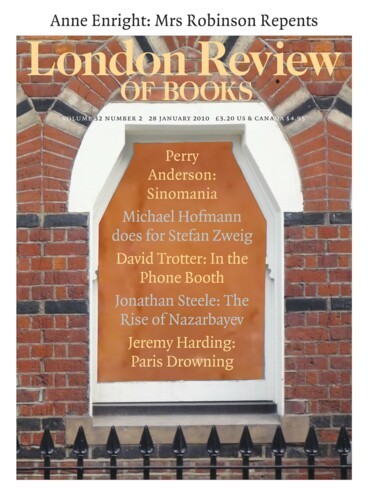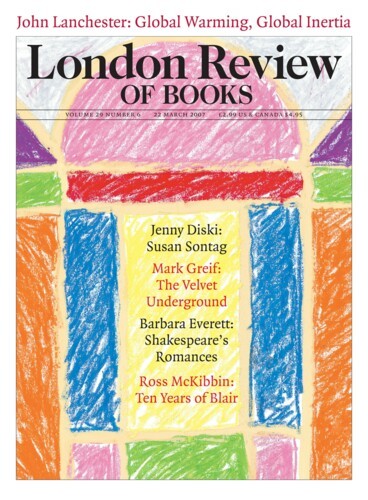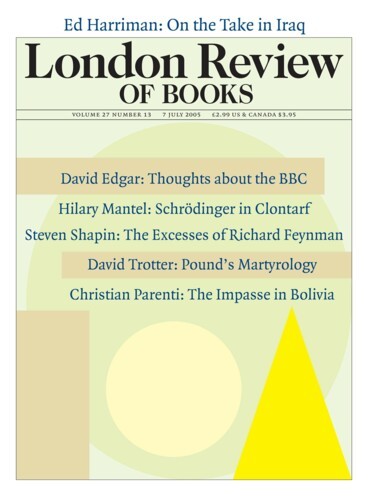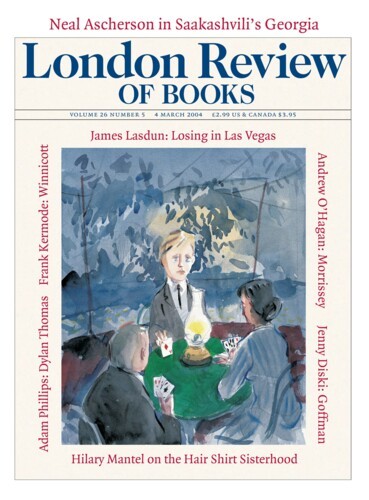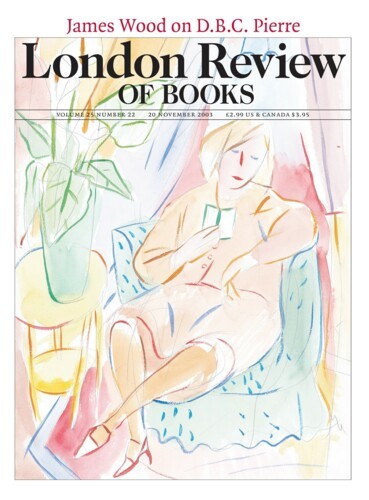The Person in the Phone Booth: Phone Booths
David Trotter, 28 January 2010
Anyone old enough to have made use of public phone booths on a regular basis will know that they were more often than not damp, cold, filthy and foul-smelling, and while amply supplied with the phone numbers of prostitutes, practically impossible to make any sort of call from. So folk memory insists, at any rate. So literature insists too. Urban phone booths in particular have become...
